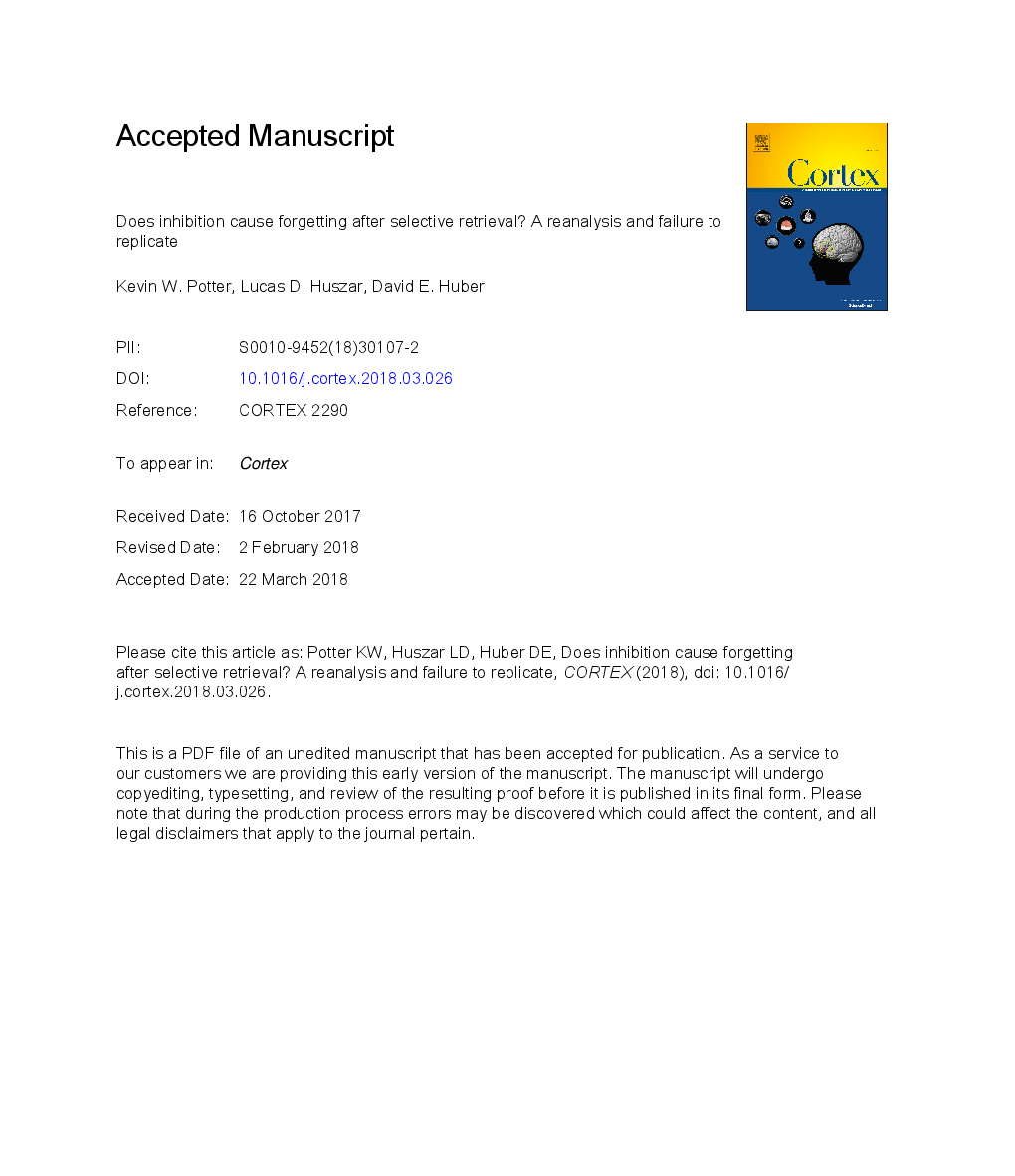ترجمه فارسی عنوان مقاله
آیا مهار باعث فراموشی بعد از بازیابی انتخابی می شود؟ بازنگری و عدم تکثیر
عنوان انگلیسی
Does inhibition cause forgetting after selective retrieval? A reanalysis and failure to replicate
| کد مقاله | سال انتشار | تعداد صفحات مقاله انگلیسی |
|---|---|---|
| 119608 | 2018 | 41 صفحه PDF |
منبع

Publisher : Elsevier - Science Direct (الزویر - ساینس دایرکت)
Journal : Cortex, Volume 104, July 2018, Pages 26-45
ترجمه کلمات کلیدی
حافظه، بازیابی ناشی از فراموشی، تکثیر،
کلمات کلیدی انگلیسی
Memory; Retrieval induced forgetting; Replication;

